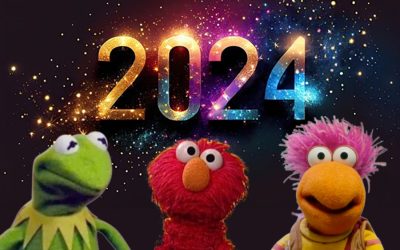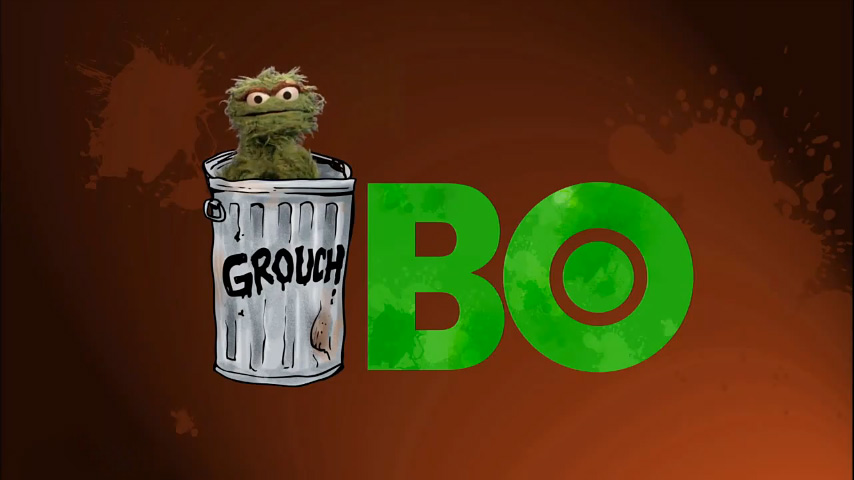We’re all fans of Sesame Street here… but does that mean we’re fans of Sesame Workshop?
When Sesame Workshop started as the Children’s Television Workshop, its mission was simply to create Sesame Street, and Sesame Street was clearly the product of its philosophy, process, leaders, and staff. Sesame and CTW were one entity. Indivisible.
These days, I don’t see Sesame Workshop that way. I may be a fan of Sesame, but I’m not always a fan of Workshop. Today I’m especially frustrated with Workshop, because today I’m writing about the Washington Post article.
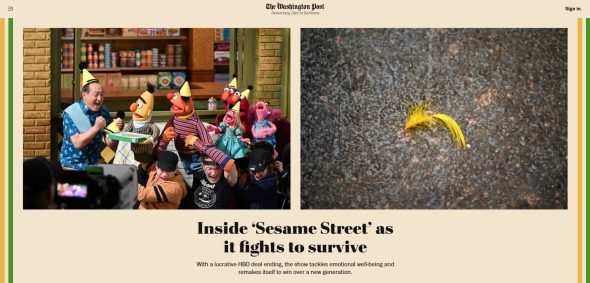
On December 22, 2024, The Washington Post published “Inside ‘Sesame Street’ as it fights to survive” by Laura Meckler. Meckler was given access to the development of the show’s 55th season, and that development process is long. This article was two years in the making. She had no idea when she started this project that she would find an organization struggling to stay alive. The piece was accompanied by a companion podcast episode.
While the report is mostly bad news, the reporting itself was possibly the greatest gift Muppet fans received in 2024. Finally, somebody told the world everything that we fans have suspected and worried about for years! ToughPigs recently covered most of the facts we learned from this report, but if I may, I’d likely to politely scream at you about a few key points I can’t get off my mind.
#1 Sesame Street is Not Popular
The Washington Post report revealed that Sesame Street is only the 14th most popular show for children on streaming services. That data was from Nielsen, the longtime definitive source for TV ratings in the US, but it was supplemented with an internal review at the Workshop that confirmed Sesame was alarmingly unpopular compared to its competition. “Sesame’s engagement has been waning,” it said, “and if the brand continues without doing anything, it will not survive.”
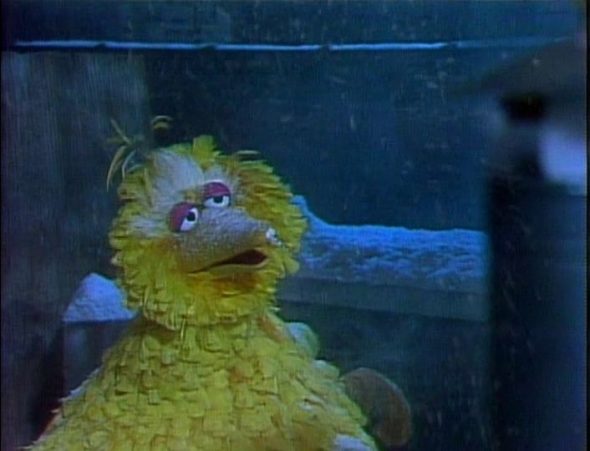
By contrast, you know what’s really popular? The Idea of Sesame Street Continuing. I’ve seen casual fans on social media urging everyone to donate to the Workshop, while others call for the show to become a federally funded public service so it isn’t dependent on profitability. It seems we’d rather pay for the show to continue while nobody watches it than actually watch the show to help it continue.
I’ve also seen folks raging against Warner CEO David Zazlav. Of course, Warner Bros. Discovery doesn’t control Sesame Street, but for some fans, Zazlav has been a fun person to be angry with in the absence of anyone else to blame. The trouble is, the problems on the Street started long before the HBO deal, so I take no comfort in yelling at Warner. I take comfort in yelling at some ambiguous notion I call “Workshop” – the non-artists in the organization (management, marketing, curriculum, etc.) who’ve transformed the show into what it is today.
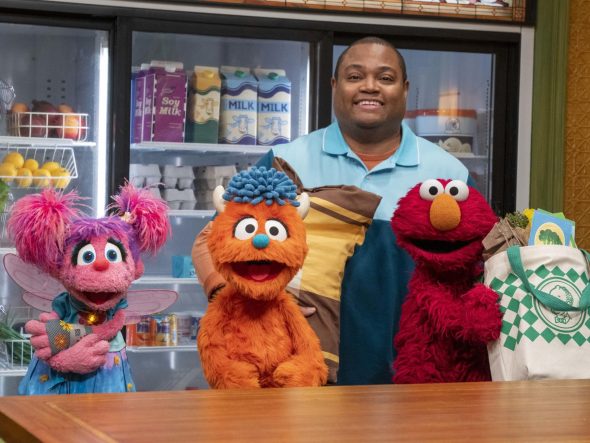
I recognize that there’s a lot more competition than there used to be and the media landscape is always changing. Staying on top in the children’s TV business has always been a challenging chess game, but now it feels like a new kind of chess from hell with two dozen players. I also recognize that the competition may sometimes have advantages, if only budgetary ones, while the Workshop has to deal with the costs and complications of producing a high quality puppet project and research project.
However… the Workshop has had the benefits of enviable brand recognition, access to countless big celebrities, a tremendous social media following, the attention of the press, the astonishing talents of their Muppet performers and actors, the timeless character designs of the Henson Company, the prestige of being an Emmy juggernaut, tens of millions of dollars from HBO, distribution across multiple platforms, and an unmeasurable nostalgia factor.
So, sure, maybe kids’ TV is a 24-way chess game now, but somehow the other players only have pawns to defend their kings while the Workshop is playing with all queens, and they’re still losing. Something is wrong here, gang.
#2 The Constraints on the Creatives Are Confounding
“The level of editing that goes into these scripts was incredible. They look at each and every word, and they have those academic experts come back and look at every single word too,” Meckler said on the podcast. She seems to say this with admiration, but the article reveals how this meticulous picking apart of the scripts can get really silly.
Meckler tells the story of writer Liz Hara’s successful effort to get a fun Bert and Ernie episode made, and her unsuccessful effort to get a fun joke past the curriculum department. Ernie is throwing a surprise party for Bert, and when they arrive, Ernie is supposed to say the secret word, asparagus, to summon their friends to surprise Bert. He forgets the word and tries every other ‘A’ word he can think of: “Artichoke? Apple. Adventure! Antidisestablishmentarianism.”
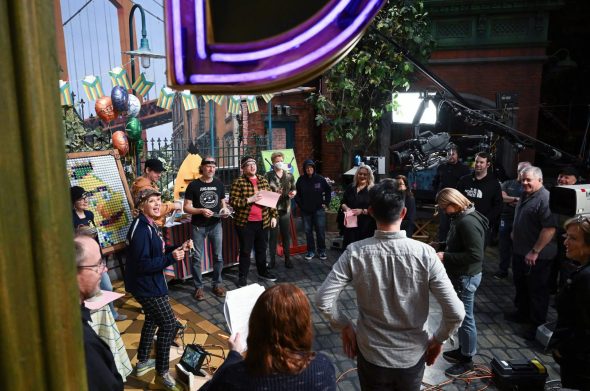
By gosh, did I laugh reading that. It’s a glorious joke. But it didn’t make it into the episode. Rosemarie Truglio, who directs the curriculum department at the workshop, was concerned that the children wouldn’t get the joke. Hara fought for it admirably, but Truglio’s belief that it would “confuse” the kids won out.
That is just baffling.
The point of the joke is not the word itself. The point is that it’s a big, weird, silly word. Sesame’s always been able to make that gag work. In 1993, Monty told us he and Prairie Dawn were going to jump up and down and yell “Arugula!” Kids didn’t need to know about arugula, and there’s nothing confusing about the dynamic of the sketch once Prairie retorts, “No we are not.”
In the classic song “La La La”, Ernie and Bert sing ‘L’ words, building up to Bert’s enthusiastic delivery of “Linoleum!” I watched this bit over and over as a little kid, laughing at linoleum every time, without a clue what it meant. I learned my letters though! The song was so effective that they remade the sketch in Season 30, lip-syncing to the original audio. Hara’s joke is an even funnier version of this old chestnut, but the Workshop’s fear of “confusion” won out.
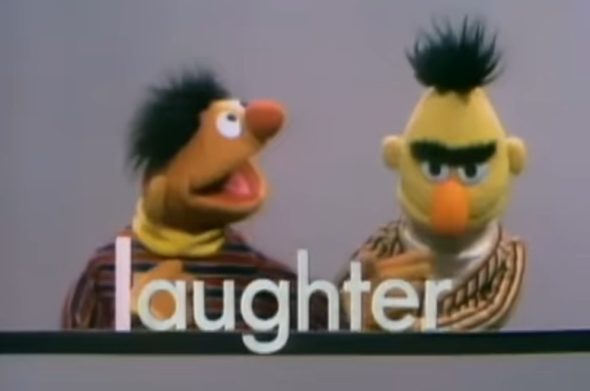
What I worry about here is that the Workshop may have gotten itself into a bad cycle by prioritizing total and immediate retention. The article mentions how the test audience couldn’t remember who Bert and Ernie were, so they added a moment at the top of the episode for Bert and Ernie to tell the camera their names and what their deal is (Bert likes quiet, Ernie is the Dark Prince of Chaos, etc.). This may have helped them see the retention results they wanted, but this sort of hand-holding makes the show feel, to me, far more aimed at younger kids, or even infants. And infants don’t retain much. Less retention leads to more talking down to the audience, leads to a younger audience, leads to less retention.
Here’s the strange thing: everyone knows how important repetition is to remembering things. Most every episode of Sesame Street, old or new, is full of repetition. So you’d think the priority would have always been getting kids to come back to the show again and again. The more often kids watch, the more likely it is they will remember who Ernie is, not to mention the curriculum. That requires entertainment!
With that said, getting the audience to stick around for a second episode will be impossible anyway if kids aren’t introduced to a first episode, and that may prove to be a bigger problem than we ever imagined.
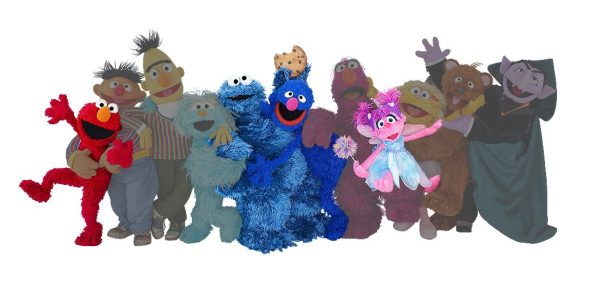
#3 Big Characters Are Getting Minimized
While Season 55 will still feature all our friends about as prominently as usual (which isn’t necessarily a lot), Season 56 will focus on four characters and render the rest secondary at best. Those four characters are Elmo, Abby, Cookie Monster, and Grover.
I can see why they felt the need to do this. The first episode of Season 54 began with Elmo showing us a mural and pointing at every character who was going to appear later in the episode, just to help us keep track of them all. There were so many that even I struggled to remember all their names, and that episode hardly included half their main cast. It would make sense for them to only expect kids to remember a handful of characters for now, and if those characters regain their popularity, the show can reintroduce more characters later. I follow the logic!
But that episode points to bigger problems that this proposed solution may not address. Grover spends the whole episode trying to tell us that the cast of characters on Sesame Street can’t be friends since they’re different from each other. That’s not motivated by Grover’s personality. He’s funny in that episode, but it doesn’t stop him from being more of a device than a character. I’m highlighting this because, if future seasons will be banking on their stories and characters to hook in new viewers, I think there’s trouble ahead unless the show’s approach to these characters changes to make their choices psychologically motivated.
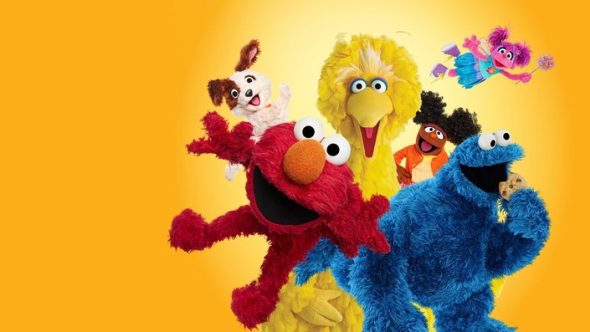
The biggest problem with this plan, however, is the inevitable negative public reaction. Nobody wants to hear that you’re getting rid of Big Bird! Remember the time some guy announced that publicly it hurt his presidential run and sparked a march on Washington? And that’s when elections were normal!
Without Big Bird, Ernie, Bert, Oscar, Roxie Marie, and the rest, I’m not sure why parents would put this on for their kids. Of course, the Workshop has spent years trying to reckon with the fact that parents aren’t even watching TV with their kids anyhow. The TV, phone, and tablet have become babysitters. Even before that, in a post-Barney landscape, it might not seem like the popularity of a kid show is influenced by its popularity with parents, given how annoying adults found Barney. Yet, post-Bluey, it sure seems like adult fanbases matter, and I fear Sesame is poised to shrink its adult fanbase instead of growing it.
So, for me, being a fan of Sesame means I can’t be a fan of Workshop right now. I want the show to be the best it can be, and I’m not convinced its current caretakers can make that happen. And yet, while I may not be a fan of the Workshop, I am a fan of The Idea of the Workshop. Here’s hoping that, somehow, The Idea lives on forever.
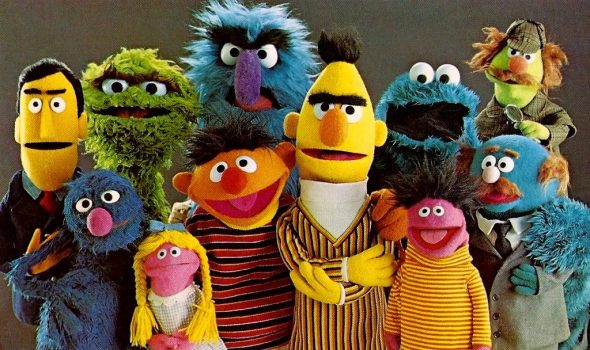
Click here to learn the rules of 24-way chess on the ToughPigs Discord!
by J.D. Hansel


